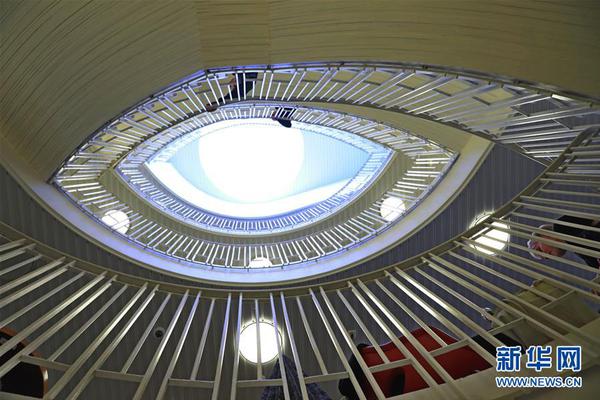The poolside sex videos2017 Nobel Prize in Physiology or Medicine was awarded on Monday morning to Jeffrey Hall, Michael Rosbash, and Michael Young for their discoveries of the molecular underpinnings of the circadian rhythms that help organisms adapt to our 24-hour days.
The scientists “were able to peek inside our biological clock and elucidate its inner workings,” said Thomas Perlmann, Secretary of the Nobel Committee for Physiology or Medicine, who announced the prize in Stockholm. “Their discoveries explain how plants, animals, and humans adapt their biological rhythm so that it is synchronized with the Earth’s revolutions.”
SEE ALSO: Google Doodle honours Australia's only Nobel Prize winner in chemistryHall, of Brandeis University; Rosbash, also of Brandeis; and Young, of Rockefeller University, will share a prize of 9 million Swedish krona, or about $940,000.
When Perlmann called Rosbash, the newly minted laureate was initially silent, and then said, “You are kidding me.”
As far back as the 1970s, scientists asked whether it would be possible to identify genes that control the daily rhythm of metabolism, sleeping and waking, and other basic processes in fruit flies. They found that mutations in an unknown gene disrupted flies’ circadian clock and named the gene “period,” or per.
In the 1980s Hall and Rosbash, working at Brandeis, and, separately, Young at Rockefeller isolated the circadian rhythm genes. Hall and Rosbash then discovered that levels of the protein the gene makes, dubbed PER, build up during the night and drop during the day, oscillating over a 24-hour cycle. The gene Young found in 1994, called timeless, makes a protein named TIM that was also required for a normal circadian rhythm.
 (L-R) Jeffrey C. Hall, Michael Rosbash and Michael W. Young Winners of the 2017 Nobel Prize in Physiology or Medicine. Credit: JONAS EKSTROMER/EPA-EFE/REX/Shutterstock
(L-R) Jeffrey C. Hall, Michael Rosbash and Michael W. Young Winners of the 2017 Nobel Prize in Physiology or Medicine. Credit: JONAS EKSTROMER/EPA-EFE/REX/Shutterstock The “paradigm-shifting discoveries,” as the Nobel citation called them, were that the proteins enter the cell nucleus, where its genes reside, and turn off the DNA that had been busy making them. In other words, the build-up of the protein causes the production of the protein to shut down, in one of nature’s more elegant negative feedback loops.
People’s circadian rhythms are controlled much as flies’ are, with gene expression cycling through a 24-hour (or so) period. “Since the seminal discoveries by the three laureates, circadian biology has developed into a vast and highly dynamic research field, with implications for our health and wellbeing,” the Nobel citation said.
Jeremy Berg, editor-in-chief of Science and former director of the National Institute of General Medical Sciences, called the laureates’ work “very elegant and fundamental.” Before their discoveries, he said, “the nature of the circadian clock was a great mystery. Through genetics and the emerging tools of molecular biology, a very elegant molecular pathway was sorted out involving a feedback loop where a protein controls its own expression.”
One of the surprises of this work, Berg said, is that the circadian clock operates in essentially all cells that contain a nucleus, not only specialized cells in the brain, allowing PER and TIM to “affect other aspects of physiology” with “implications for work schedules, sleep hygiene,” and more, ushering in the field of chronobiology.
(Editor: {typename type="name"/})
 Lions vs. Commanders 2025 livestream: Watch NFL Playoffs for free
Lions vs. Commanders 2025 livestream: Watch NFL Playoffs for free
 Samsung Galaxy S25 Ultra vs Apple iPhone 16 Pro Max: Battle of the premium smartphones
Samsung Galaxy S25 Ultra vs Apple iPhone 16 Pro Max: Battle of the premium smartphones
 Best tablet deal: Get the Samsung Galaxy Tab S10+ for its lowest price yet
Best tablet deal: Get the Samsung Galaxy Tab S10+ for its lowest price yet
 Washington Wizards vs. LA Clippers 2025 livestream: Watch NBA online
Washington Wizards vs. LA Clippers 2025 livestream: Watch NBA online
 Waymo stopped Los Angeles man from stealing a driverless car
Waymo stopped Los Angeles man from stealing a driverless car
Best robot vacuums from CES 2025: Most are cool, only some are practical
 After a year of pretty practical innovations initially kicked off at CES 2024, it was tricky to pred
...[Details]
After a year of pretty practical innovations initially kicked off at CES 2024, it was tricky to pred
...[Details]
NYT mini crossword answers for January 24, 2025
 The Mini is a bite-sized version of The New York Times' revered daily crossword. While the crossword
...[Details]
The Mini is a bite-sized version of The New York Times' revered daily crossword. While the crossword
...[Details]
Stuff Your Kindle Day Jan. 23: Free contemporary cozy mystery e
 FREE E-BOOKS:On Jan. 23, hundreds of e-books are completely free on Amazon. Shop these contemporary
...[Details]
FREE E-BOOKS:On Jan. 23, hundreds of e-books are completely free on Amazon. Shop these contemporary
...[Details]
Best headphones deal: Save $30 on JLab JBuds Lux ANC
 SAVE $30:As of Jan. 24, the JLab JBuds Lux ANC headphones are on sale for $49.99 at Best Buy. This i
...[Details]
SAVE $30:As of Jan. 24, the JLab JBuds Lux ANC headphones are on sale for $49.99 at Best Buy. This i
...[Details]
Report: Match Group dating apps conceal assault cases
 A damning investigation from nonprofit news organization The Markup and Pulitzer Center's AI Account
...[Details]
A damning investigation from nonprofit news organization The Markup and Pulitzer Center's AI Account
...[Details]
Best Samsung TV deal: Save $498 on 85
 SAVE $498:As of Jan. 24, Samsung's 85-inch 4K Crystal UHD DU8000 smart TV is on sale at Amazon for $
...[Details]
SAVE $498:As of Jan. 24, Samsung's 85-inch 4K Crystal UHD DU8000 smart TV is on sale at Amazon for $
...[Details]
Winter storm warnings: How to see online if more snow is heading your way
 A massive winter storm is blanketing large swaths of the Southern U.S. in snow and ice, leaving mill
...[Details]
A massive winter storm is blanketing large swaths of the Southern U.S. in snow and ice, leaving mill
...[Details]
Android brings next gen Bluetooth to hearing aids, screen readers
 Android users who use assistive devices can anticipate in a new era of connection and control, right
...[Details]
Android users who use assistive devices can anticipate in a new era of connection and control, right
...[Details]
Google's data center raises the stakes in this state's 'water wars'
 Endless emails, map requests, web searches, and everything else we do online requires the use of ene
...[Details]
Endless emails, map requests, web searches, and everything else we do online requires the use of ene
...[Details]
What are immigration red cards? How the internet is rallying behind undocumented workers
 In the wake of Trump's sweeping promises to "reform" the country's immigration processes, crackdown
...[Details]
In the wake of Trump's sweeping promises to "reform" the country's immigration processes, crackdown
...[Details]
Best Echo Show 5 deal: Save $20 at Amazon

Florida snow looks otherworldly. See the wildest photos on social media from the recent storm

接受PR>=1、BR>=1,流量相当,内容相关类链接。